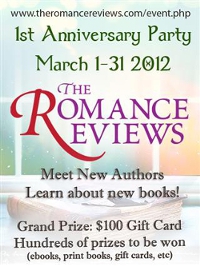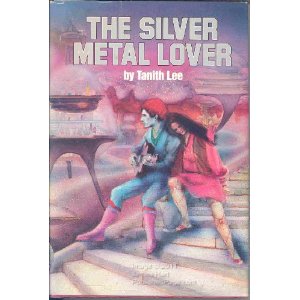
So, I read this essay yesterday in The Atlantic Monthly, that ostensibly exhorted people to make a conscientious effort to read more.
Now, I’m all about that. I love to read. I love to talk about books. I should be all about this essay.
But no.
Because the author just HAD to go there. She had to draw a line between good and bad reading. Which I’ve just really had quite enough of. Thus, she pissed off the genre-reader in me. Also, she failed to properly cite her data sources and, worse, drew spurious conclusions. Now she’s annoyed the neuroscientist in me.
You can go read the essay if you wish. It’s fine – the author creates an analogy of the healthfulness of the Slow-Food Movement to her proposed Slow-Books Movement. Not really the same thing, but the metaphor works in general.
This is the section that gets me:
Also excluded: non-literary books.
Why the emphasis on literature? By playing with language, plot structure, and images, it challenges us cognitively even as it entertains. It invites us to see the world in a different way, demands that we interpret unusual descriptions, and pushes our memories to recall characters and plot details. In fact, as Annie Murphy Paul noted in a March 17 New York Times op-ed, neuroscientists have found plenty of proof that reading fiction stimulates all sorts of cognitive areas—not just language regions but also those responsible for coordinating movement and interpreting smells. Because literary books are so mentally invigorating, and require such engagement, they make us smarter than other kinds of reading material, as a 2009 University of Santa Barbara indicated. Researchers found that subjects who read Kafka’s “The Country Doctor”—which includes feverish hallucinations from the narrator and surreal elements—performed better on a subsequent learning task than a control group that read a straightforward summary of the story. (They probably enjoyed themselves a lot more while reading, too.)
Literature doesn’t just make us smarter, however; it makes us us, shaping our consciences and our identities. Strong narratives—from Moby-Dick to William Styron’s suicide memoir, Darkness Visible—help us develop empathy. Research by Canadian psychologists Keith Oatley and Raymond Mar suggests that reading fiction even hones our social skills, as Paul notes. “Dr. Oatley and Dr. Mar, in collaboration with several other scientists, reported … that individuals who frequently read fiction seem to be better able to understand other people, empathize with them, and see the world from their perspective,” she writes. “This relationship persisted even after the researchers accounted for the possibility that more empathetic individuals might prefer reading novels.”
Let’s break this down, shall we?
First of all, she cites someone else’s op ed and interpretation as a data source:
In fact, as Annie Murphy Paul noted in a March 17 New York Times op-ed, neuroscientists have found plenty of proof that reading fiction stimulates all sorts of cognitive areas—not just language regions but also those responsible for coordinating movement and interpreting smells.
At least she linked to it, right? So I went and read that. I’m familiar with some of these studies, which that essay does review in detail, with citations. As I suspected, these are very interesting studies that show when someone reads about an action, the brain “lights up” in the same way as when the person actually performs the action. Fascinating stuff. The thing is, to keep things simple, always a key point for scientific experimentation, the researchers used children’s stories. Thus references to lines such as “John grasped the object” and “Pablo kicked the ball.”
Still, pretty cool, huh?
But our essayist goes directly to this conclusion:
Because literary books are so mentally invigorating, and require such engagement, they make us smarter than other kinds of reading material…
Okay. I’m scratching my head, wondering how she went from “Pablo kicked the ball” level reading to mentally invigorating literary books. But then I see – she has another study to cite. Her logic is a little reversed, but really it’s just the way she composed the sentence, finishing the thought with:
…as a 2009 University of Santa Barbara indicated. Researchers found that subjects who read Kafka’s “The Country Doctor”—which includes feverish hallucinations from the narrator and surreal elements—performed better on a subsequent learning task than a control group that read a straightforward summary of the story.
Anyone else spot the flaw in the conclusion here? Yeah. the study found that reading the story itself has a different effect than reading the freaking summary. It did not compare The Country Doctor to Interview with the Vampire. (I’ve read both, by the way – full disclosure.) I couldn’t find out more about this particular study, which sounded interesting, since she didn’t include a citation. Alas.
So then she states:
Literature doesn’t just make us smarter, however; it makes us us, shaping our consciences and our identities.
Her opinion, not supported by any data that I can see. Though she appears to connect the assertion to the following summary:
Strong narratives—from Moby-Dick to William Styron’s suicide memoir, Darkness Visible—help us develop empathy. Research by Canadian psychologists Keith Oatley and Raymond Mar suggests that reading fiction even hones our social skills, as Paul notes. “Dr. Oatley and Dr. Mar, in collaboration with several other scientists, reported … that individuals who frequently read fiction seem to be better able to understand other people, empathize with them, and see the world from their perspective,” she writes. “This relationship persisted even after the researchers accounted for the possibility that more empathetic individuals might prefer reading novels.”
Our essayist is back to citing another essayist’s summary of research. Okay. So I went back to Paul’s essay and confirmed that, yes, her summary still just says “fiction” – not a mention of Moby-Dick or any William Styron in sight. (And why not mention Sophie’s Choice? Far better known. Too commercial?) Then I looked up Oatley and Mar’s work. Again, no citation provided – don’t English majors have to learn this stuff, too?
I wasn’t able to access the actual papers (*sigh*), but I could review the publication list for their research. Scientific paper titles tell you a lot, because they’re intended to encapsulate exactly what was tested. Such as Exposure to narrative fiction versus expository nonfiction: Diverging social and cognitive outcomes. There’s also Bookworms versus nerds: Exposure to fiction versus non-fiction, divergent associations with social ability, and the simulation of fictional social worlds.
Yeah – you’re all clever people. You see it, too. They’re comparing fiction to nonfiction. Some of the other titles are less definitive, referring only to narrative fiction. Nowhere did I see a comparison of literary fiction to genre fiction. I’d be interested to see the studies, frankly. However, I suspect most scientists wouldn’t touch an experimental design like that, because of the difficult of defining what is literary and what is genre. Fiction versus nonfiction is a reasonably clean demarcation.
Our essayist says: Best of all, perhaps, serious reading will make you feel good about yourself. I would point out that what she’s really saying is that what she considers to be serious reading (not really a definable term, scientifically) makes her feel good about herself. More power to her! Choose your reading and enjoy it!
But please, people, let’s exercise a bit more caution with conclusions. Literary fiction might be “better” for us than genre. I’m willing to be persuaded.
Your strong opinion is not enough, however, no matter how you might mix and match the data to suit your purposes.
 Spring seems to be officially here! Isn’t it lovely to see the flowers again?
Spring seems to be officially here! Isn’t it lovely to see the flowers again?






